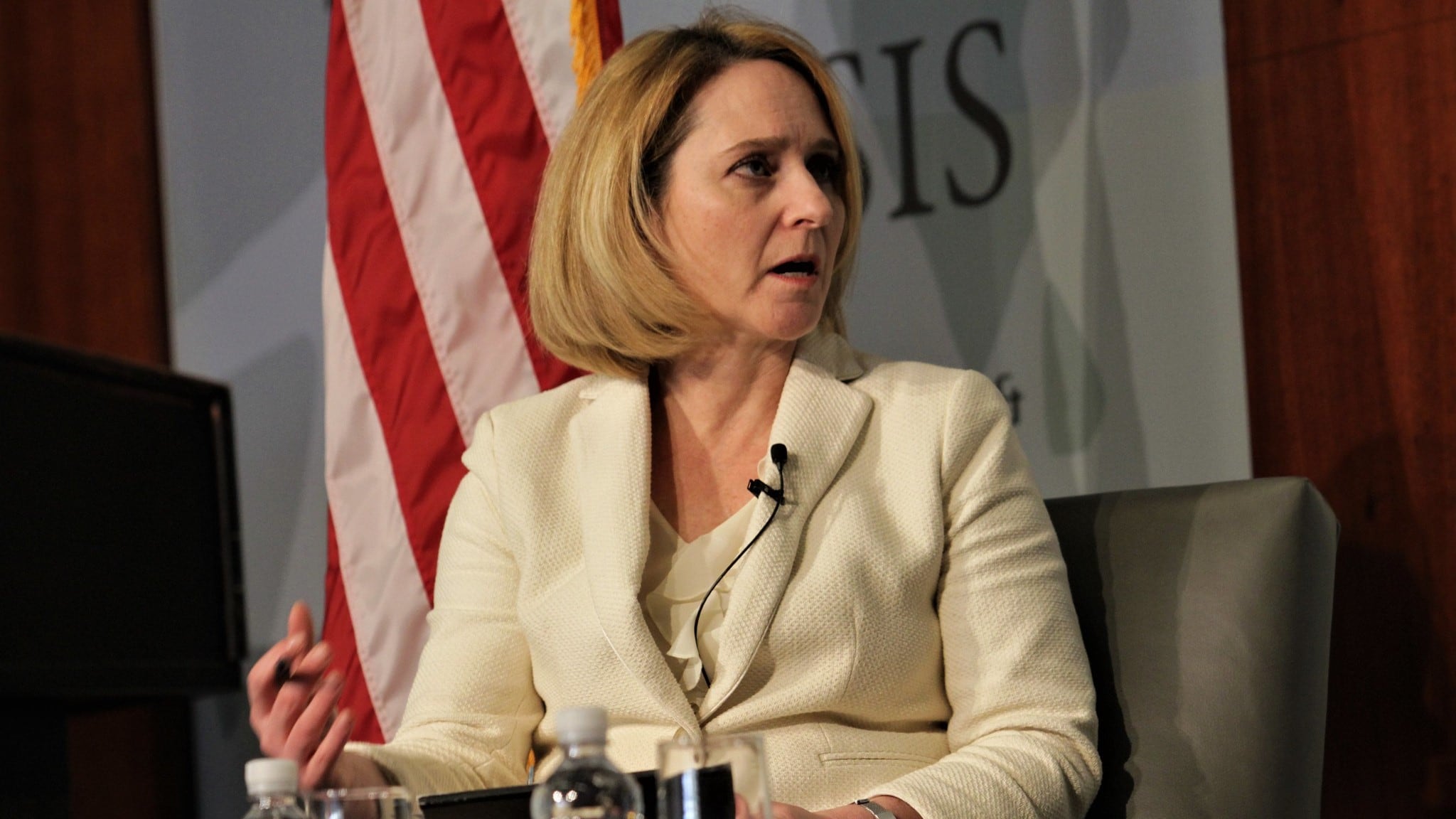WASHINGTON ― The Senate confirmed Kathleen Hicks as deputy defense secretary on Monday evening, making her the first woman to be confirmed by the Senate to the position.
Hicks, who led President Joe Biden’s transition team at the Pentagon, was a deputy undersecretary of defense under the Obama administration. More recently, she led international security program at the Center for Strategic and International Studies.
The Senate Armed Services Committee approved Hicks on Feb. 4 and on Monday confirmed her by a voice vote.
When Defense Secretary Lloyd Austin’s military background fueled concerns about civilian control of the military, Austin stressed during his confirmation hearing he would be relying heavily on civilians and said Hicks will have a major role in policy decisions.
“She is a highly regarded defense policy expert who has served in multiple administrations with integrity and distinction,” Senate Armed Services Committee Chairman Jack Reed, D-R.I., said in a statement. “She is a true professional. I am pleased she will join Secretary Austin in leading the Department of Defense forward, defending our nation, and upholding our values.”
RELATED

Because Austin served on the board of Raytheon Technologies and agreed to recuse himself from decisions concerning the company, decisions involving the firm will fall to Hicks.
That includes two key nuclear capabilities: the intercontinental ballistic missile replacement program, known as the Ground Based Strategic Deterrent, as well as the Long Range Standoff Weapon, a nuclear cruise missile.
During her confirmation hearing, Hicks offered support for nuclear modernization and the nuclear triad. She also said she would defer to Austin and Biden on matters of nuclear policy.
As the Biden administration is expected to propose flat defense spending, Hicks said told lawmakers she thought the budget could be trimmed without sacrificing national security.
Hicks, whose office would review deals that involve national security issues, also said she was concerned by consolidation in the defense industrial base and that competition is needed for the U.S. military to maintain an edge over China and Russia.
“Extreme consolidation does create challenges for innovation,” she said.
Joe Gould was the senior Pentagon reporter for Defense News, covering the intersection of national security policy, politics and the defense industry. He had previously served as Congress reporter.







